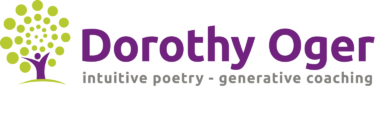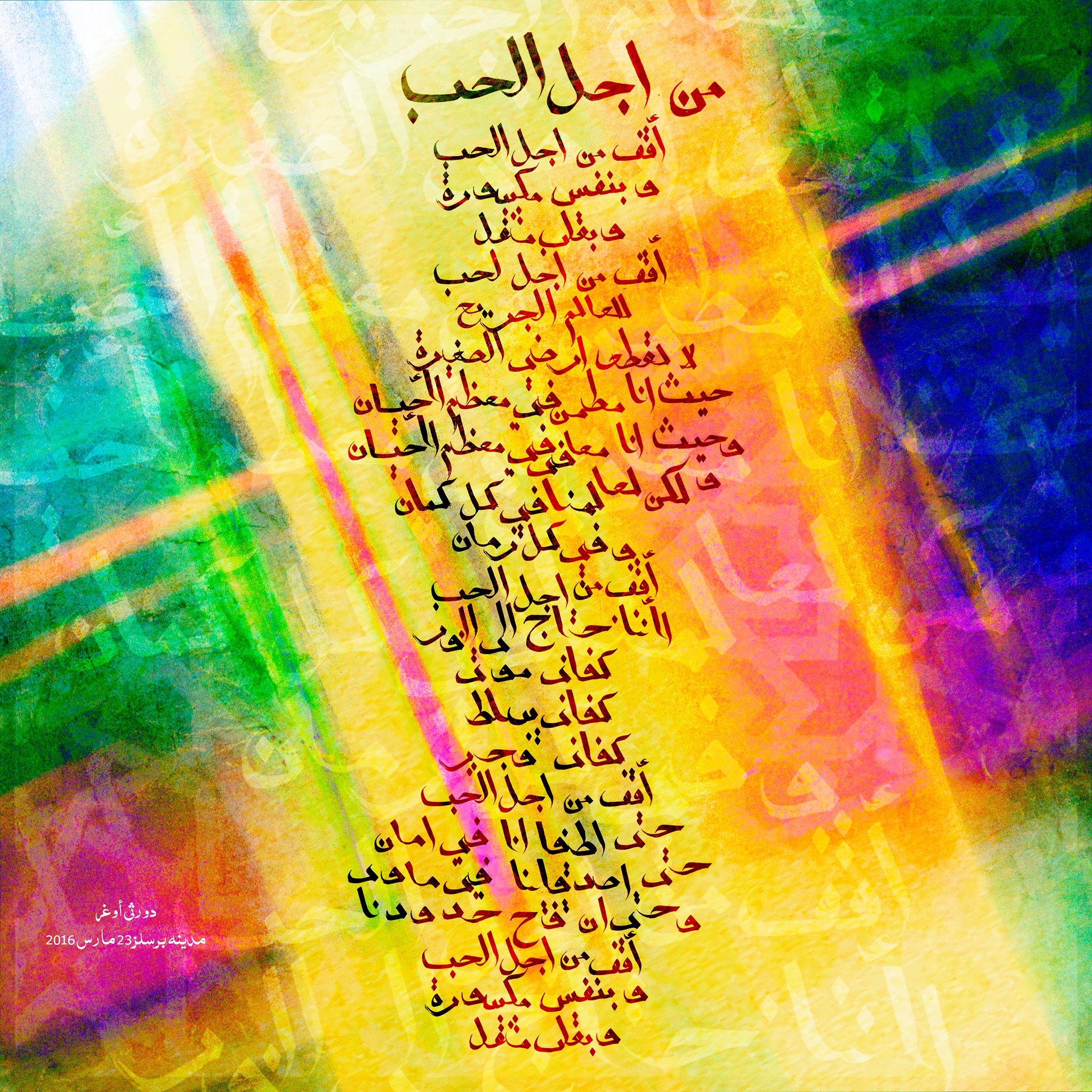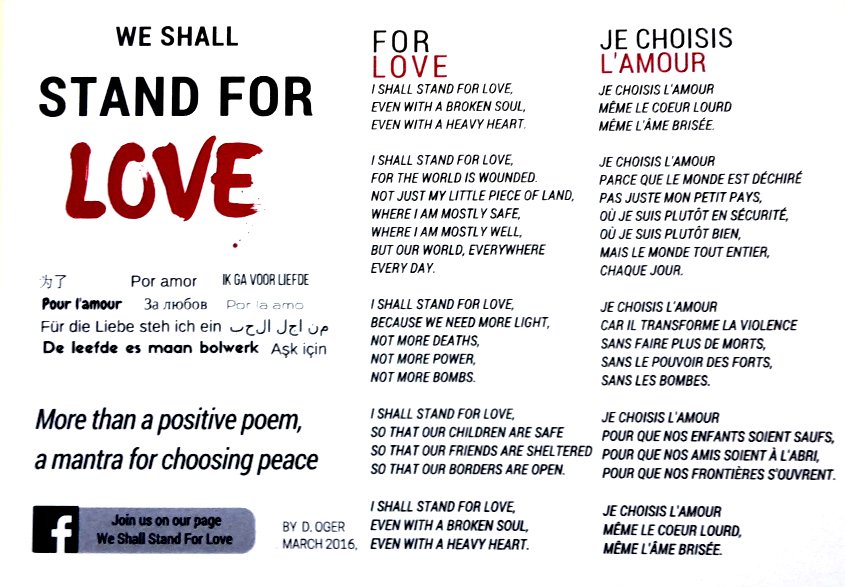How One Poem Changed Me.
On Tuesday, March 22nd, 2016, at 9:11 a.m., a bomb explodes in a Brussels metro station. A good friend of mine, Johan, goes missing.
The ripples of blind violence have just hit me, and I am devastated.
Throughout that day and night, I battle with the same old questions. This horror is one of those defining moments in life, with a “before” and an “after.” I realize that I cannot go back to business as usual. I refuse violence. I refuse to be a victim.
But I ask myself — as I have been asking myself for a long while now:
“Why do we have so much hate?” “Why do we still fight each other?” “Why does intolerance defeat compassion?”
I feel shame for not knowing what to say and what to do.
Am I kidding myself trying to figure out MY way to wage peace? Indeed I lack courage. I am hesitant about the next step. I feel powerless.
How to regain my power?
When you don’t know what to say, try poetry. Ann Kroeker.
That’s my super-power.
So, first thing, the next morning, I MUST write. And as I am writing, something clears in me. For the first time, I physically experience the healing power of poetry. There is a shift. I no longer feel stuck in a brook of glue.
The poem “For Love” is born.
Sharing is caring
I share the poem privately with my grieving friends. It resonates with them, and they ask me to put it on-line. By noon, someone shares “For Love” for the first time, creating a ripple that will reach at least 80 000 single users on social media in the first six months.
And then, Ilaria sends her Italian translation of the poem. She says:
because I need to hear your poem in my mother tongue. IIaria Vilkelis.
Her message comforts me and validates the need for translations. It boosts my resolve to share the text as widely as possible.
Sharing the poem is also Johan’s message.
I last saw him two days before the attack. We are saying goodbye after a three-day workshop that we go to every year. His last words to me are:
You will remember to share the poems with the group, won’t you?
He is referring to the poems I usually write during the annual workshops. I share them on the spot, and then I send them by email.
When I start writing that Wednesday morning after the attacks, it is almost like I am hearing him whisper, “share the poem.”
Community Support
Ilaria’s offer to ask our network for translations and artistic interpretations comes as another blessing. I am feeling more empowered.
This is something I can do right now, and it is right up my alley.
And so, the translations start pouring in. Each new version of the poem has a profound healing effect on me. Each reaction reconciles me with the world and gives back me some power.
In parallel to all this, I am hyper-connected to the friends I have in common with Johan, supporting and getting support.
I am experiencing a whirlpool of emotions. We connect online every evening at 9 p.m., not to exchange news, but to be present to ourselves and each other. And we rotate to go and sit with Kristin, Johan’s life partner, in a physical circle every night.
I have never experienced group support at such a level. My father passed away when I was 17 years old, and I went through this loss on my own. Now I understand, probably for the first time, how important it is to come together in grief.
Circles "We Have the Choice"
A beautiful outcome of this tragedy is that we hold these circles together. They transform into the voluntary citizen’s initiative: “We have the choice. When the world needs us to sit together, listen and connect.”
Circles are meaningful encounters with a group of people to reflect on what happens to each of us in this age of hardening and extreme violence.
We are now on the third morning after the attacks. Brian has sent me the song he made from the poem. Almost at the same time, I receive news that Johan did not survive the explosion.
I weep. I listen to Brian’s song, and I cry.
Sharing with strangers
I start going to the Square in Brussels, where people are laying flowers for the victims. In a binder, I have about 40 translations of the poem. I go with a couple of friends and with my god-daughter. We approach people, introduce ourselves and ask if they want to read the poem in their mother tongue. Many are simply tourists passing by. The majority accepts. We hear the poem in English, Chinese, Korean, Kurdish, Arabic, Ukrainian, French, Dutch, Italian.
And I love that these people read the poem and are touched too, like this Iraqi man. He has been living in Brussels for a few months. He is speaking broken English, but he is determined to learn. I tell him my story and show him the Arabic version of the poem. The man spontaneously starts reading it aloud. The text moves him deeply. And I am deeply moved. We have never met before, but we hug. And in that hug, something happens.
Fear becomes trust.
Anger becomes courage.
Hate becomes love.
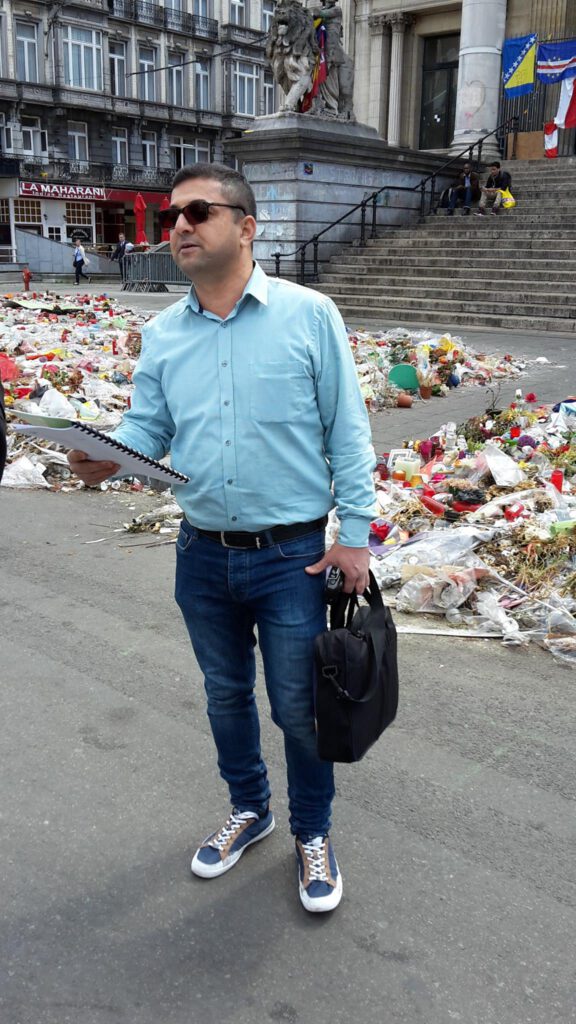
I have many more stories of people reading the poem in their mother tongue. Even though I don’t understand them, I can see in their eyes that something shifts in them. We connect as human beings, heart to heart.
The Poem "For Love."
Ripples of Love
Starting its journey in Brussels, the poem has traveled farther than I ever have, reaching all continents except Antarctica.
People have shared “For Love” in public or privately, more than I can keep track of, to people of all ages, origins, and economic status.
What I remember most vividly is how people everywhere showed up and showed they cared. “For Love” allowed them to act with generosity and compassion as they translated and distributed the poem.
I love that people sometimes ask me if they can contribute their translation of the poem even though it already exists in that language. Sometimes, they give me a regional equivalent of a language — making sure to include everyone.
I love that these versions are not perfect, like my text. They come from the heart
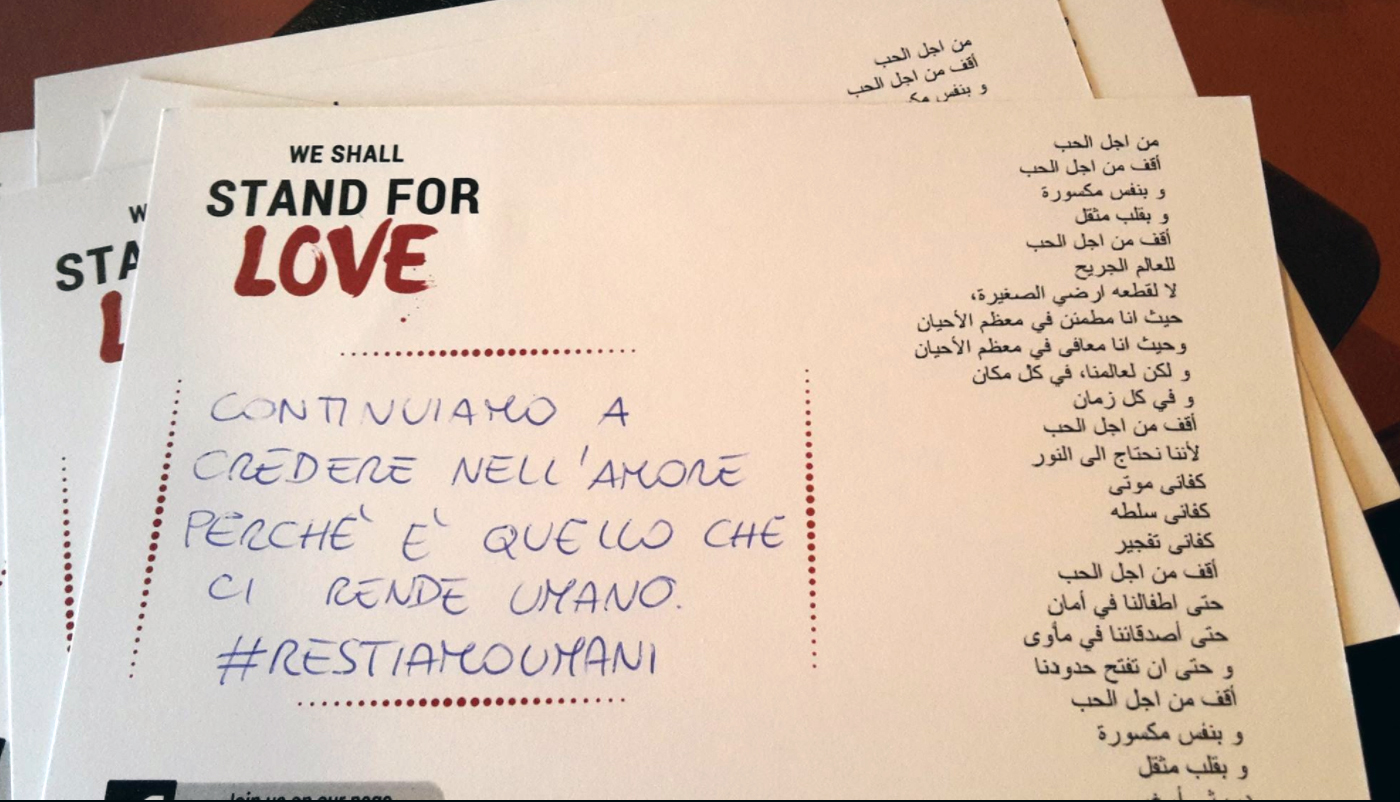
I love that friends and colleagues have distributed thousands of postcards in several languages. Ybe brought them on her trauma tour to Greece, where she helped refugees. Kamar traveled to Lebanon and back to Syria to distribute postcards to students at her University in Damascus.
Many also contributed their talents. For instance, María who created this animation movie:
Today
Five years and 70 translations further, my voice travels everywhere. I realize my ambition to set (a virtual) foot everywhere with my poems in languages that I don’t speak.
More importantly, “For Love” continues to touch hearts and inspire people to do what they can.
I use the poem as a mantra, reminding me to stand for love. When I face a difficult decision, I ask myself: “If I stand for love, what is the next step to take here?”. I carry postcards everywhere. They find a home in people’s wallets, on their inspiration wall, or their consultation table.
Greta Franclet and her friends of the association “Les Langues Autrement” in Château Thierry, France — responsible for several translations — regularly say the poem in public in multiple languages.
What I have learned
Through this experience, I have felt the power of words. I have witnessed the strength of community. And I have reconnected with the beauty of using one’s talents for peace.
Standing for love through poetry is who I am. Sharing what I write with others is what I have done for 45 years. I seek resonance through words. So when “For Love” resonates, I feel my heart beat. My eyes sparkle and a big smile appears on my face. I feel recognized.
The poem teaches me every day that when the ripples of love move me — I bring peace to the world, one action, one word, one language at a time.
Where can you find the poem?
Disclaimer
All contributions to “For Love” are voluntary. I don’t gain any financial benefits.
